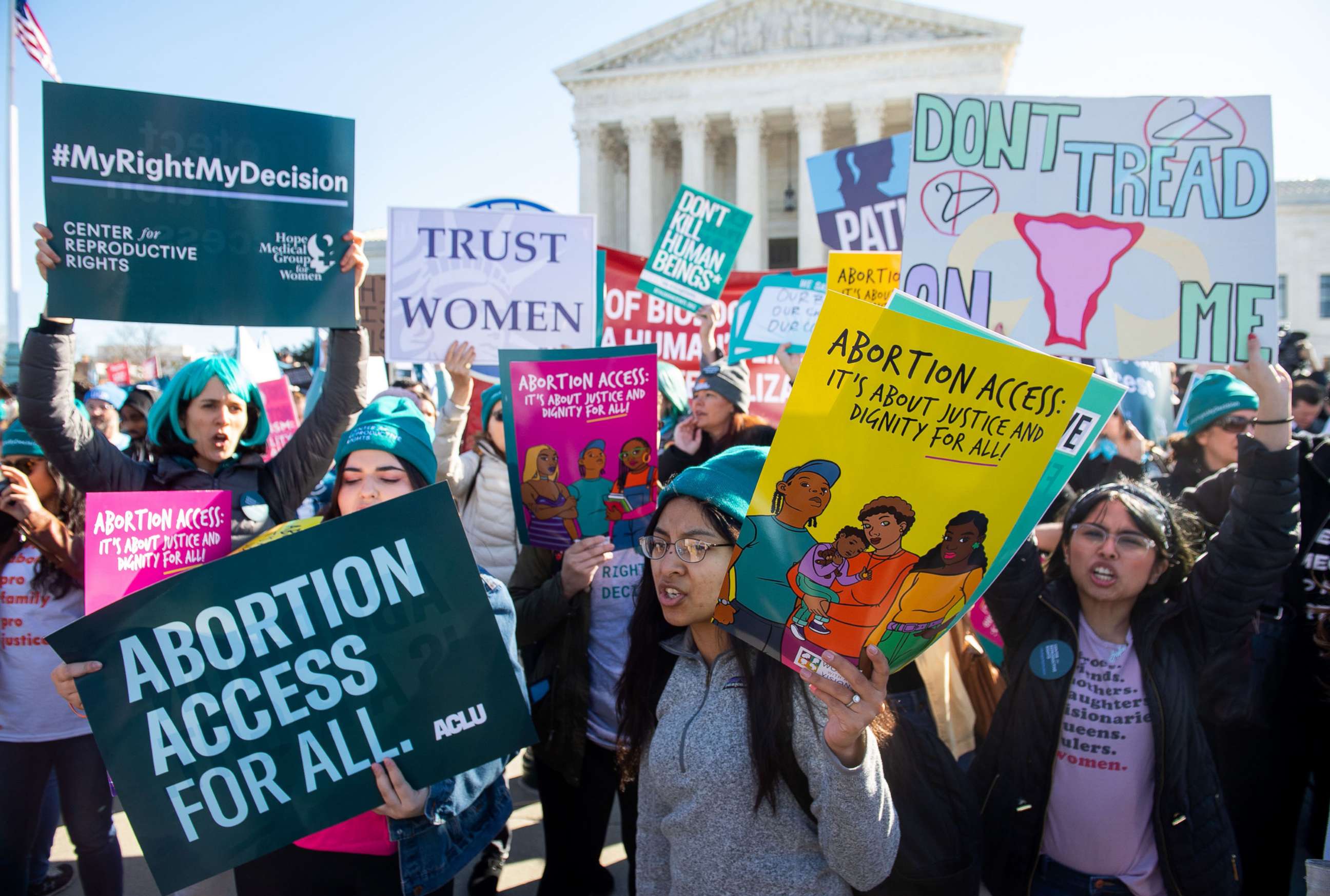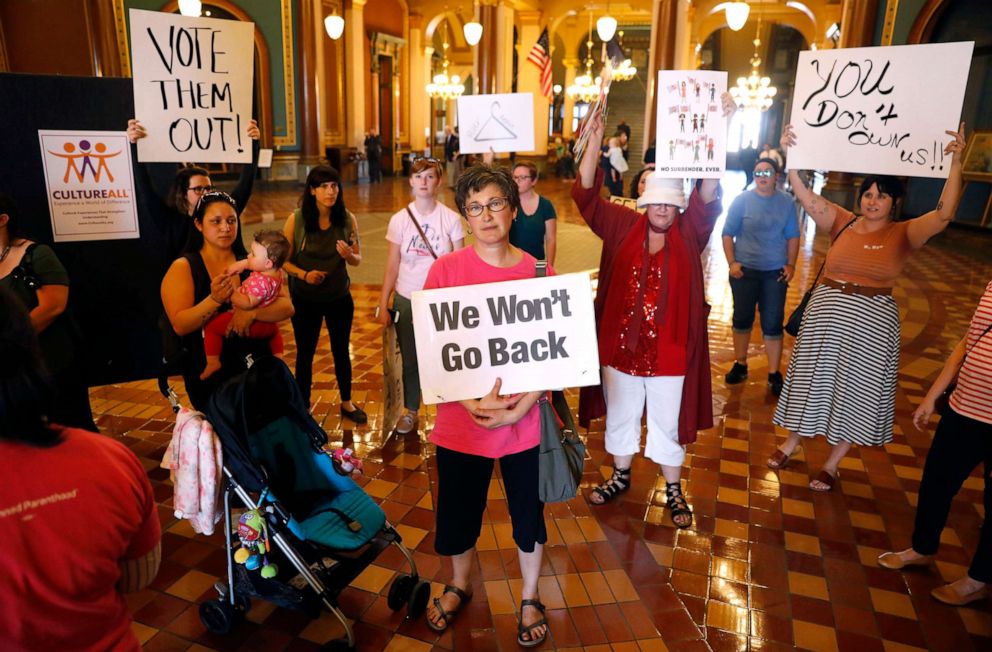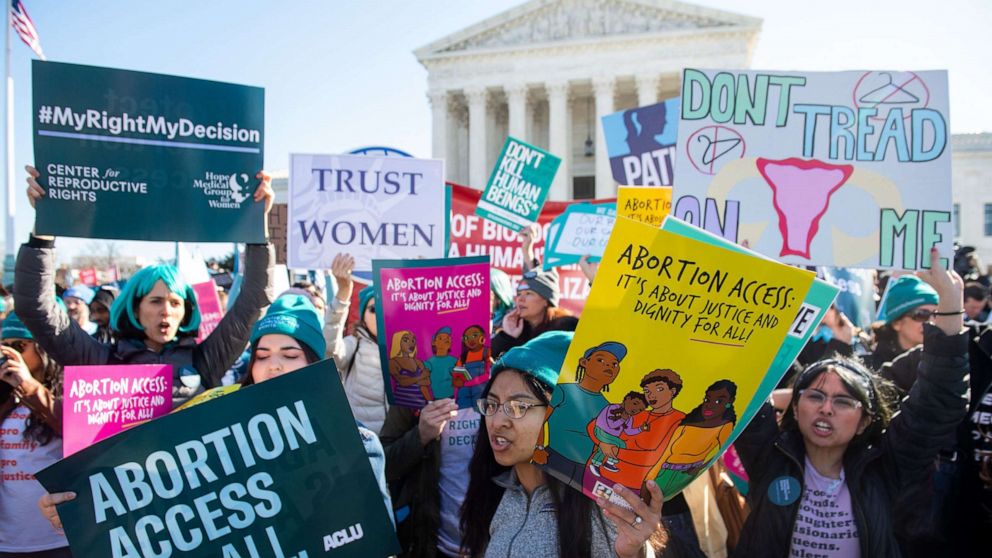States moving to reinforce reproductive rights amid the pandemic, new report finds
During the first half of the year, 44 states and the District of Columbia introduced nearly 550 bills that protect reproductive health access, particularly during the coronavirus pandemic, according to a new report.
The National Institute for Reproductive Health's annual "Gaining Ground" report assesses state efforts to advance reproductive health, rights and justice during the first six months of the year.
This year's report comes at an unprecedented moment. For one, the pandemic has temporarily shuttered legislatures, impacting the amount of legislation that can move forward. Last year's "Gaining Ground" report noted that, among proactive legislation on reproductive health, 831 bills were introduced and 94 bills were fully enacted as of June 15. This year, 546 bills have been introduced and 47 have been fully enacted in the same time frame.
The health crisis has also "exacerbated and heightened the existing barriers to access to reproductive health care" for vulnerable communities, Andrea Miller, president of the advocacy group, told ABC News. That includes communities of color, young people, those living in rural settings and low-wage earners, she said.
As states responded to COVID-19 with lockdown measures, there was a "flurry of activity" during the first few weeks of the pandemic to increase access to reproductive health care, Miller said.

According to the report, eight states -- California, Illinois, Michigan, Minnesota, Montana, New Mexico, Virginia and Washington -- designated reproductive health care, family planning services or pregnancy-related care as essential services in their executive orders. Another three -- Massachusetts, New Jersey and New York -- explicitly included abortion care in their lists of essential procedures. The attorneys general of Hawaii and Oregon both stated that their states' orders intended to classify abortion as "essential," the report notes.
These actions came as several state lawmakers unsuccessfully attempted to restrict abortion access during the pandemic, the report adds.
Several states responded to concerns raised around birthing during COVID-19, Miller said. When some hospitals started prohibiting a support person or partner present during birth due to COVID-19 concerns, New York and New Jersey mandated that hospitals allow at least one support person.
The organization has also seen "creative thinking" during the pandemic that impacts reproductive health access, Miller said, especially in the areas of telemedicine.
As states waived regulations or enacted new laws to expand telemedicine, patients could consult with their doctors via phone call or video and have prescriptions mailed to them or sent to their pharmacy. In late March, the attorneys general of 21 states asked the FDA to lift restrictions on the medication abortion prescription drug Mifepristone via telemedicine, the report notes.
"We're certainly hopeful that the greater reliance upon and greater understanding of the utility and usefulness and capacity to use telemedicine, that that trend will hopefully continue," Miller said.

Beyond states' COVID-19 responses, major legislation enacted so far this year included Virginia's Reproductive Health Protection Act, which repealed major barriers to abortion care. Virginia lawmakers have also enacted laws to provide menstrual products in schools and expand access to doulas, as well as bills to prohibit pregnancy discrimination and the shacking of pregnant and postpartum incarcerated women, the report notes.
NIRH's latest survey arrived in the wake of a major Supreme Court ruling last week that reaffirmed abortion rights in Louisiana. Despite that victory, Miller expects to see more attempts to restrict access to reproductive care, especially in the South, going into next year.
In 2019, more than 350 pieces of legislation restricting abortions were introduced in the U.S., according to the Guttmacher Institute.
As state legislatures reconvene, Miller hopes lawmakers continue to address the disparity in reproductive health access, "which this pandemic has highlighted so intensely," she said.




